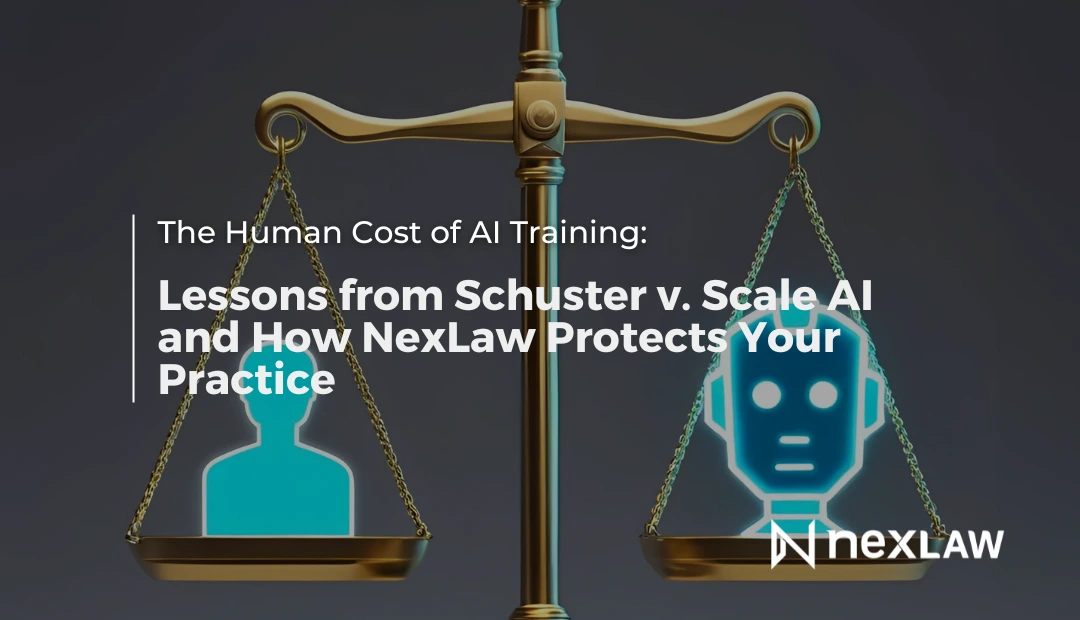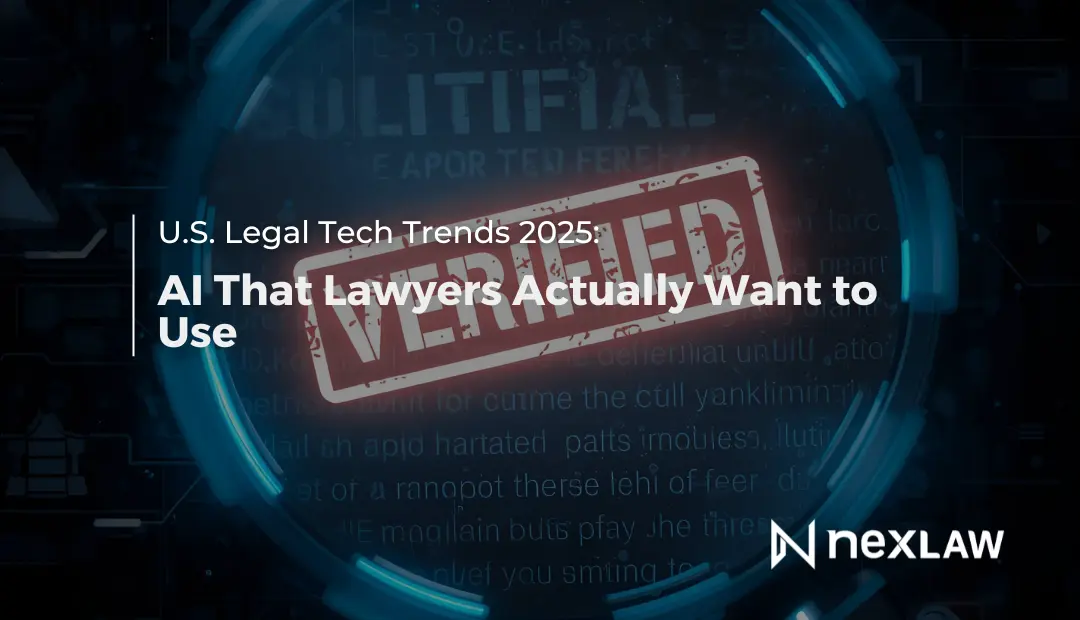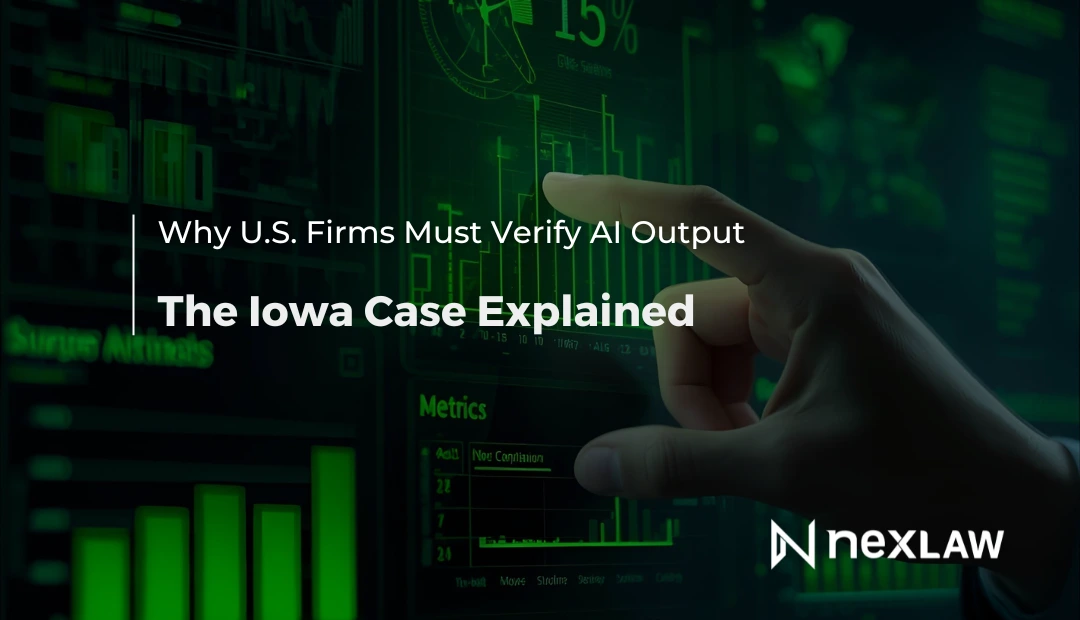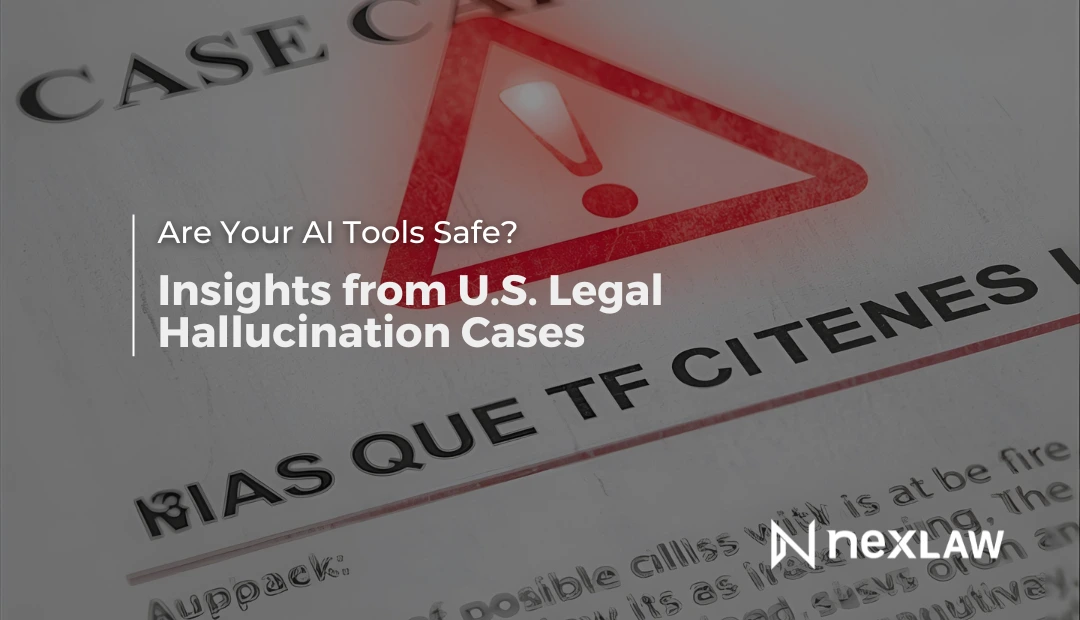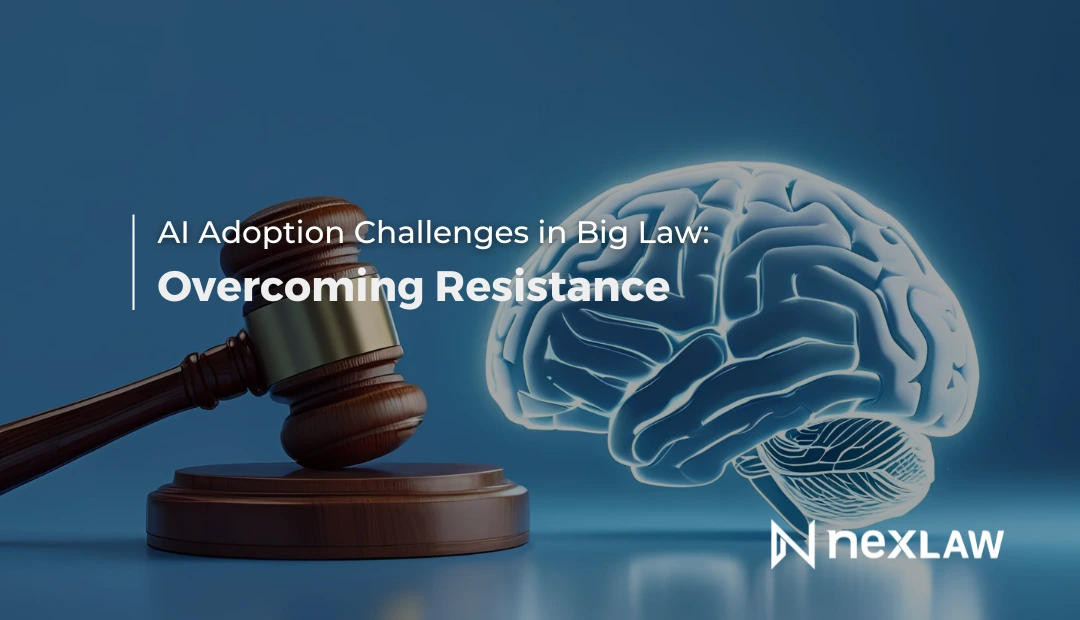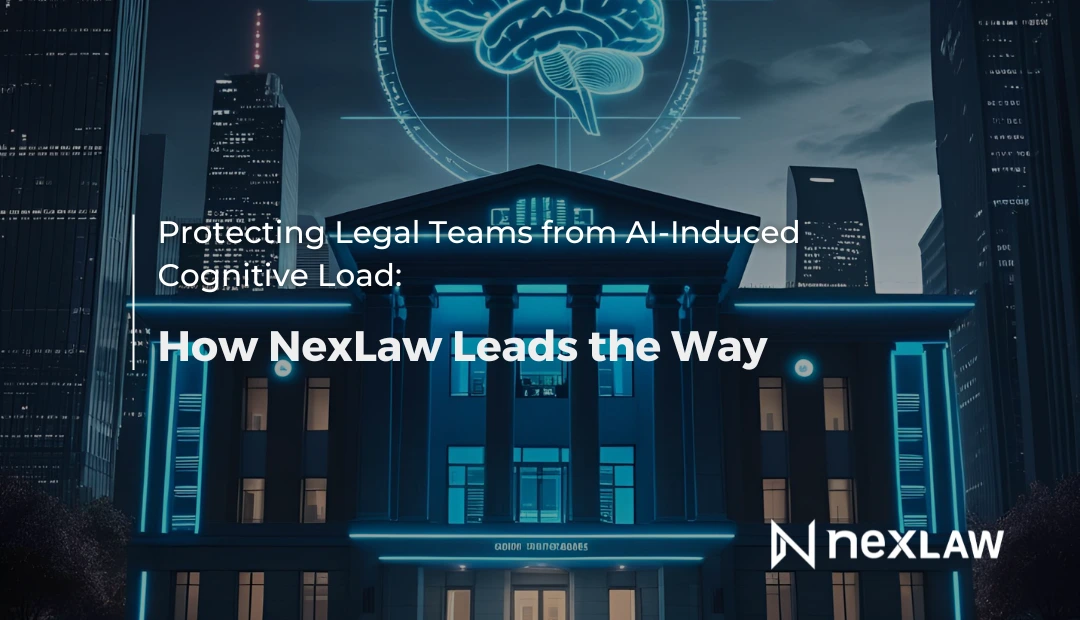The Human Cost of AI Training: Lessons from Schuster v. Scale AI and How NexLaw Protects Your Practice
Artificial Intelligence is no longer a futuristic concept for the legal field, it’s here, and it’s deeply woven into everyday litigation work. AI-powered tools can organize mountains of case files, identify critical precedents in seconds, and cut the time attorneys spend on repetitive tasks from days to hours.
But recent legal developments remind us that this technology isn’t without its human and ethical costs. The case of Schuster v. Scale AI has put a spotlight on one of AI’s least-discussed issues: the human labor behind AI training. It’s a story every attorney, law firm, and pro-se litigant should understand, because it carries direct implications for how we choose and manage AI in legal practice.
Unlock Legal Insights Instantly!
Understanding the Case — Why It Matters to Legal Professionals
In Schuster v. Scale AI, plaintiffs raised concerns about labor practices in the AI training process. AI systems need large volumes of labeled data to learn, and much of this labeling is performed by human workers, often under intense, repetitive conditions. The case underscored several risks:
- Worker Exposure: The data labeling process can involve long hours, repetitive strain, and, in some cases, inadequate protections.
- Legal Liability: If labor laws are violated, even indirectly through contractors, organizations can face class-action lawsuits.
- Ethical Responsibility: As AI becomes a core part of industries like law, public and regulatory scrutiny over how AI is developed is increasing.
For law firms, these concerns may seem distant, after all, most aren’t building AI systems from scratch. But here’s the connection: the AI tools you choose and how you manage them matter. If those tools are developed unethically or used without governance, your firm could inherit risks ranging from reputational damage to compliance failures.
The Link Between AI Training Ethics and Litigation Practice
Think of AI in the legal space as an extension of your legal team. Just as you wouldn’t hire an investigator with questionable methods, you shouldn’t rely on AI solutions without transparency in their creation and governance.
In litigation, AI is often tasked with:
- Reviewing large document sets for discovery
- Generating chronologies of events
- Analyzing case law for strategy planning
If these systems are trained on incomplete or biased datasets or developed without regard to ethical standards, they can misinterpret evidence, overlook critical information, or even introduce bias into case assessments. The result? Risk to your case outcomes and to your client relationships.
Where NexLaw Fits In — Protecting Firms from Ethical & Legal AI Risks
NexLaw was designed with these exact challenges in mind. Our platform doesn’t just offer speed, it offers transparency, compliance, and ethical safeguards built for U.S. litigation professionals.
Here’s how NexLaw directly addresses the risks highlighted by Schuster v. Scale AI:
1. Ethical AI Management
NexLaw’s AI models are trained on vetted, U.S.-specific legal datasets and follow ethical guidelines to avoid bias and misinformation. We ensure that the AI you use aligns with labor and compliance standards, so your firm isn’t indirectly contributing to unethical practices.
2. Built-In Risk Mitigation
Every output generated by NexLaw comes with a transparent audit trail. If you need to defend your processes in court or in front of a regulator, you can show exactly how results were reached.
3. Reduced Repetitive Human Labor
By automating time-consuming litigation tasks, NexLaw minimizes reliance on repetitive manual work, protecting your in-house team from burnout and reducing your exposure to external labor-related risks.
4. Core Litigation Tools That Put Compliance First
- Nexa – Streamlines case preparation by organizing evidence and legal arguments in a structured, compliant format.
- Trial Prep – Helps you prepare witnesses, exhibits, and timelines with ethical AI support, ensuring accuracy and fairness.
- ChronoVault – Creates defensible, date-based case chronologies backed by source citations and transparency logs.
A Hypothetical Example: NexLaw in Action
Let’s imagine a mid-sized litigation firm handling a complex class-action suit with over 25,000 documents in discovery. Without AI, the review process could take weeks of paralegal and attorney time, not to mention the strain of repetitive document coding.
With NexLaw:
- Document review is automated, with potential privilege or compliance concerns flagged instantly.
- Case timelines are generated via ChronoVault, providing a clear visual of events and relevant evidence.
- Bias detection safeguards ensure that no subset of data is overlooked due to skewed training inputs.
- Human oversight is built in, allowing attorneys to review every AI-assisted output before submission.
The result? The firm meets deadlines faster, reduces the physical and mental toll on staff, and maintains defensible compliance standards from start to finish.
The Business Case for Responsible AI
Ethical AI adoption isn’t just about avoiding risk, it’s a competitive advantage. Law firms that can demonstrate transparent, compliant AI use are better positioned to:
- Win client trust through clear, documented workflows
- Reduce operational bottlenecks without sacrificing quality
- Stay ahead of evolving regulations on AI use in professional services
Instead of relying on generic AI tools with opaque origins, NexLaw’s litigation-specific platform gives firms confidence that their technology supports and does not undermine their ethical obligations.
Lessons from Schuster v. Scale AI for Every Firm
The takeaway from this case is simple: you can’t separate AI performance from AI ethics. Even if your firm isn’t directly involved in AI development, you are responsible for the tools you use. And with regulators, courts, and clients becoming more AI-savvy, the standard for due diligence is rising.
By choosing an AI platform like NexLaw - one designed from the ground up for legal compliance, fairness, and transparency - you protect not just your case outcomes, but also your firm’s reputation and long-term viability.
Conclusion
The Schuster v. Scale AI case isn’t just a headline it’s a warning. The human cost of AI training can translate into legal, ethical, and reputational risks for any organization that uses AI without governance.
NexLaw equips U.S. attorneys, litigation professionals, and pro-se litigants with tools that combine efficiency and responsibility. Whether you’re preparing for trial, managing discovery, or building a case chronology, you can rely on NexLaw’s Nexa, Trial Prep, and ChronoVault features to deliver results that are fast, accurate, and compliant with both legal and ethical standards.
Ready to see how NexLaw can protect your practice while boosting efficiency?
Request a Guided Demo – See how Nexa, Trial Prep, and ChronoVault can streamline your workflows.
Start a Free 3-Day Trial – Experience NexLaw firsthand and discover how proprietary AI can improve efficiency, accuracy, and case management in your firm.
GET 15% OFF for annual plans using promo code: ANNIV15MONTHLY or ANNIV15ANNUALY
*t&c applied | visit our website for more details
